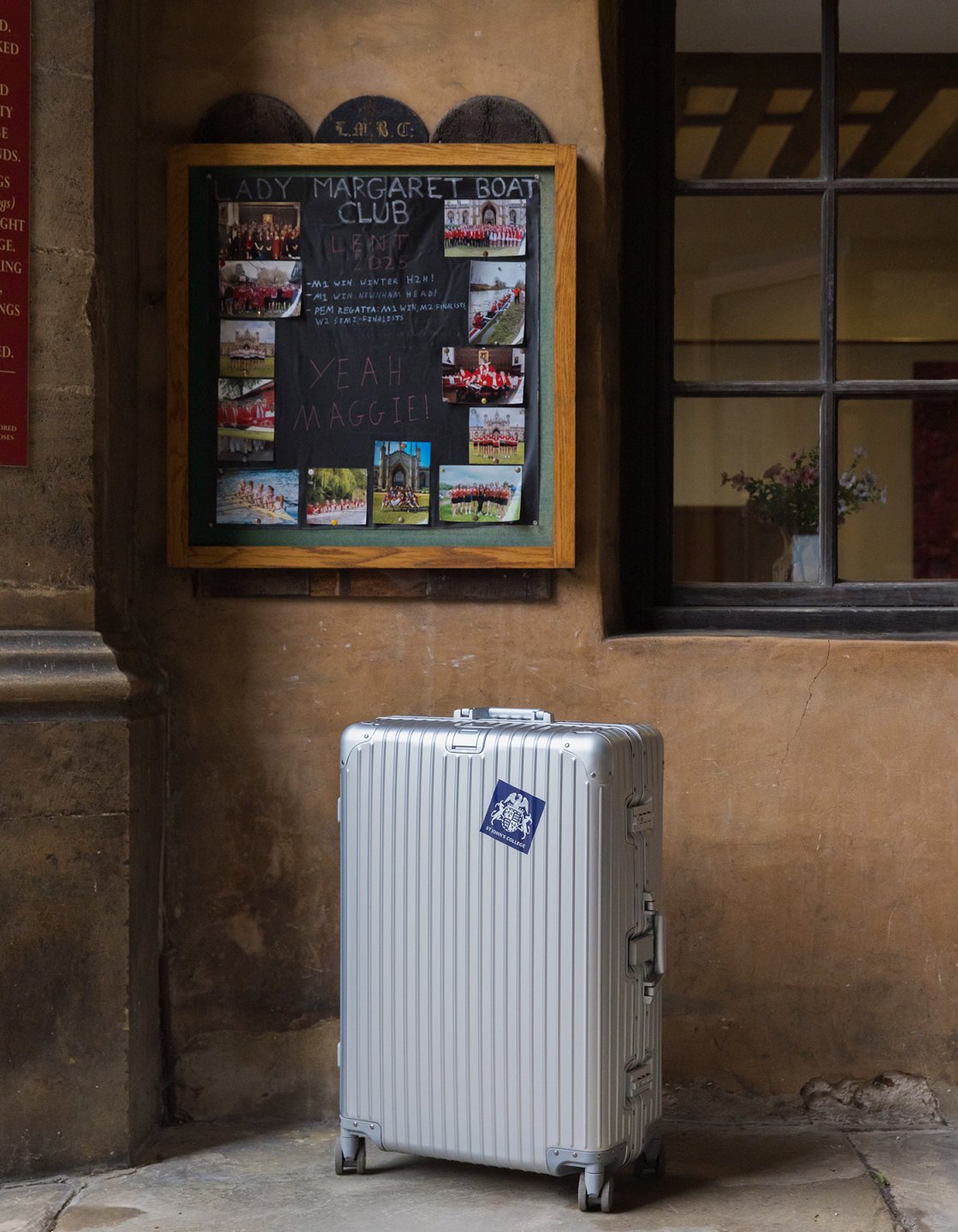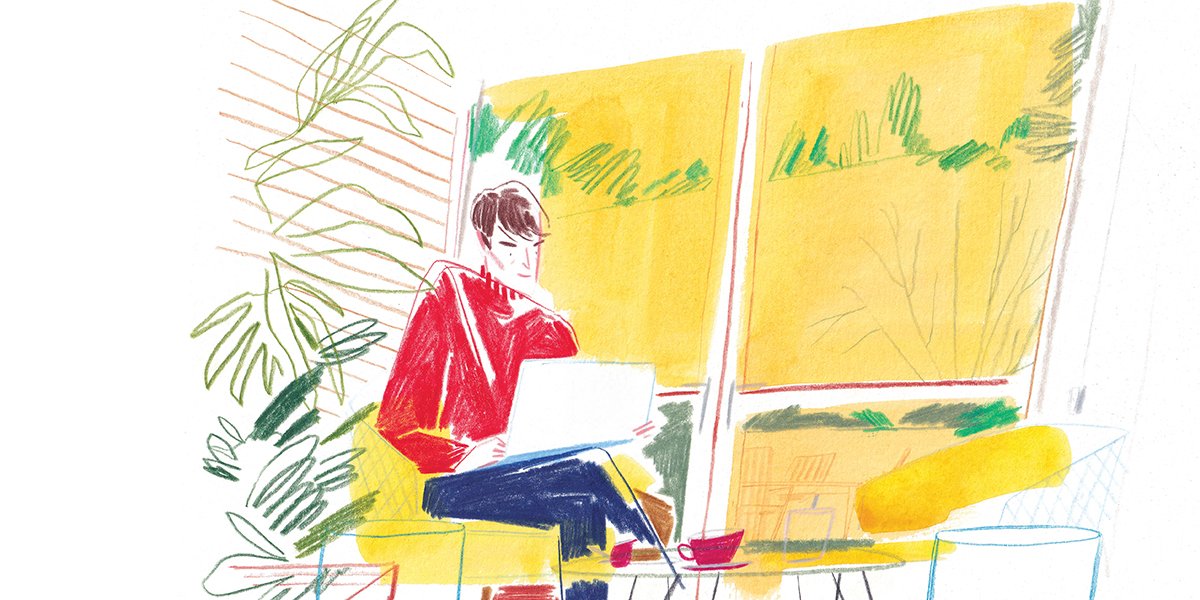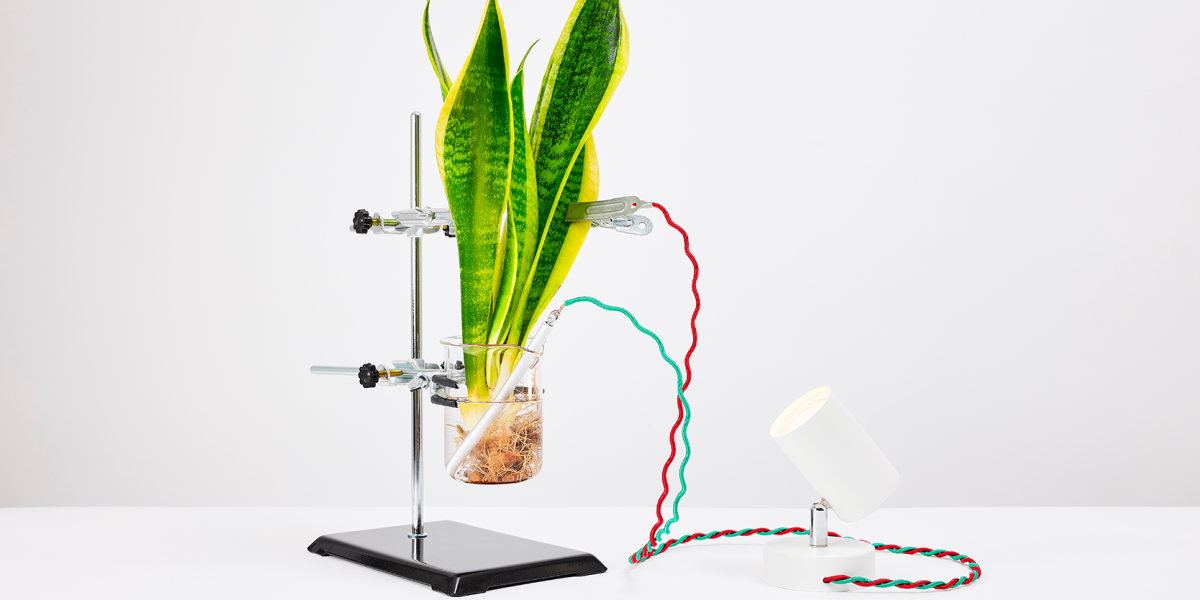On the right path
From learning to use temperamental Soviet telex systems while nursing a vodka hangover to sharing recipes with the babushki of Kazakhstan, the year abroad has been opening the eyes of Cambridge modern language students for years. Here are their stories from around the world in 365 days.

When Jamie Coomarasamy (Trinity Hall 1986) was introduced to a ‘toucher-upper’ in a Moscow jazz club called the Blue Bird in 1988, he assumed he had misheard the description of the man’s job. But thankfully it was all above board – Oleg, it turned out, had the important role of removing Mikhail Gorbachev’s famous birthmark from official photos at the newspaper Pravda. He would also prove to play a useful part in establishing Coomarasamy’s future BBC career path. Coomarasamy was in Moscow to spend six months studying at the Pushkin Institute, a placement as part of his degree in French and Russian at the Faculty of Modern and Medieval Languages and Linguistics (MMLL). During their third year, MMLL students are supported to study, teach or work in a country where people speak the language they are learning. Most are left for ever changed. “I learned to speak the language – but not only that, I got under the skin of the country and started to understand the rhythms of life,” says Coomarasamy. “It was a tough existence, so you understood why people weren’t always smiling on the metro. People didn’t have much, but hospitality was really important. If you were at someone’s house and a bottle of vodka was opened, it had to be finished that same night. There was a trick for not falling over, though – if you hid a small piece of black bread in your mouth while you drank, it would absorb some of the alcohol.” And while life was tough for Russians at the time, it was also full of quirks, Coomarasamy remembers.
“You could go to the opera, theatre or a musical performance at the Kremlin for next to nothing. You could get a jar of caviar for £2, but you’d have to queue for the bread to go with it. There would be rumours of watermelon at a certain supermarket, or sugar a few metro stops down. Supermarket cashiers still used an abacus, and when I got back to the UK, I noticed how big the trolleys were.” After completing his degree, Coomarasamy returned to Moscow – thanks to a two-week tourist visa arranged by Oleg – during the August coup of 1991, “just as Boris Yeltsin was pictured standing on the tank,” he recalls. He ended up staying for two and a half years, after getting a job at the BBC Moscow office, which initially involved sending information via an unreliable Soviet telex system. “You’d fire it up and it would die. Fire, die. It took me two hours to do what you’d do with a single text today. But I was learning broadcast journalism during the biggest story on the planet!” Dillon Mapletoft (Corpus Christi 2012), now a TV comedy writer, gained enough confidence during his year speaking Portuguese and Spanish in São Paulo and Madrid to try writing student comedy upon his return. “They say you have a different personality in a different language,” he says, “and in São Paulo I thought: ‘Maybe I can be the kind of person who doesn’t run away from things.’ My boss at the British Consulate couldn’t pronounce my name and called me Dinho, which means Tony, so I kind of was a different person!

“Cambridge was full of insanely talented and qualified people, and it had given me a kind of stage fright. But when you’re abroad, you have no choice but to jump in at the deep end, and doing that and making it work made me feel like I could sort of take the stabilisers off.”
In São Paulo, he had to find his own accommodation, and answered an online ad. “My new housemate was a recently divorced jiu-jitsu instructor who had moved out of his old place and into a cupboard Harry Potter would have been envious of,” says Mapletoft. “He could only fit a child’s bed in there, and when it arrived, it was in the shape of a sports car! We really had nothing in common: he wanted to toughen me up by taking me to his fight gym. But we sort of became friends.
They say you have a different personality in a different language, and in São Paulo I thought: ‘Maybe I can be the kind of person who doesn’t run away from things’
“Before I went to Brazil, I’d barely travelled further than Northamptonshire. And it was a shock to arrive and see some of the starker realities of life in São Paulo – people living in storm drains and sleeping under cars. I also really stood out as this skinny European guy. So when I got to Madrid for the second part of my year, I relaxed. On my first night, a stranger hugged me in the street; I thought: ‘Great!’ Then I realised I’d been pickpocketed.”
Professor Charles Forsdick, Drapers Professor of French at the MMLL, suggests that “language learning is incomplete without the development of intercultural agility”, and Mapletoft wholeheartedly agrees. “The year abroad gives you a perspective you can only get from seeing the world,” he says. “You study languages because you love them, but mainly because you want to experience that culture. You can drill yourself in grammar, but nothing compares to the challenge of living somewhere, pushing yourself every day.”
Jade Cuttle (Homerton 2013) says her year in France and Siberia prepared her for her career as an arts journalist, as well as for her current doctoral research project on nature poetry. “In Paris I attended gallery openings and wrote for an arts magazine,” she says. “In Siberia I was captivated by the scenery. I travelled deep into the forest to dig wildfire trails, which took a lot of courage as it was very remote. I wrote a lot of nature-inspired poetry and songs on a guitar, by the lake.”
And current Russian student Victoria Connolly (Jesus Fourth Year) says she fell back in love with her degree after her year abroad in Kyrgyzstan and Kazakhstan. “For me, studying was about being efficient and pleasing people, rather than experiencing things. The year out gives you time to just exist. To drink tea in a yurt, share bread and tell babushki – old ladies – about England. I came back with a renewed focus in what I was interested in, and a determination to prioritise myself – to enjoy work, but know it’s not everything.”
The year out gives you time to just exist. To drink tea in a yurt, share bread and tell old ladies about England. I came back with a renewed focus in what I was interested in, and a determination to prioritise myself – to enjoy work, but know it’s not everything
She says her biggest lesson learned was how to get on with very different people. “I stayed with a family who were very kind and considerate, but culturally very conservative. So it was about figuring out how to live with others in a respectful way but also assert your own boundaries. “The mum taught me how to cook so I could contribute to family life and help look after her mother. We cooked borscht, of course, a rice dish called plov, and dumplings known as pelmeni. The grandma and I loved the dumplings, so we would conspire against the mum to cook them often. I had struggled to find common ground with the mum, who was a concert violinist, but cooking let me step into her world without having to impose myself.” In Kazakhstan, Connolly shared a dorm at Astana University with two Westerners and 40 Kazakh girls. “They’d take us out with them to the mosque and we became friends. I also made a friend, Alisher, who was an interpreter at the Astana Ballet and who I’ve kept in touch with. He showed me backstage, and we were allowed to dance on the sprung floor.”
Connolly is now sourcing and writing news stories for the BEARR Trust NGO, which works in the region, and plans to go back out when she graduates. “I couldn’t possibly have known the impact my year abroad would have on me. It was like a Matryoshka doll – you’d open one layer and find something new underneath that you would never have seen or thought otherwise: hot springs, an abandoned Soviet sanatorium high in the mountains or pioneer camps for miners. All the things that exist in the world!”
If you would like to help future generations of Cambridge students, regardless of their background or circumstances, to benefit from the Year Abroad experience, please contact Kara Rann.
 CAM
CAM

